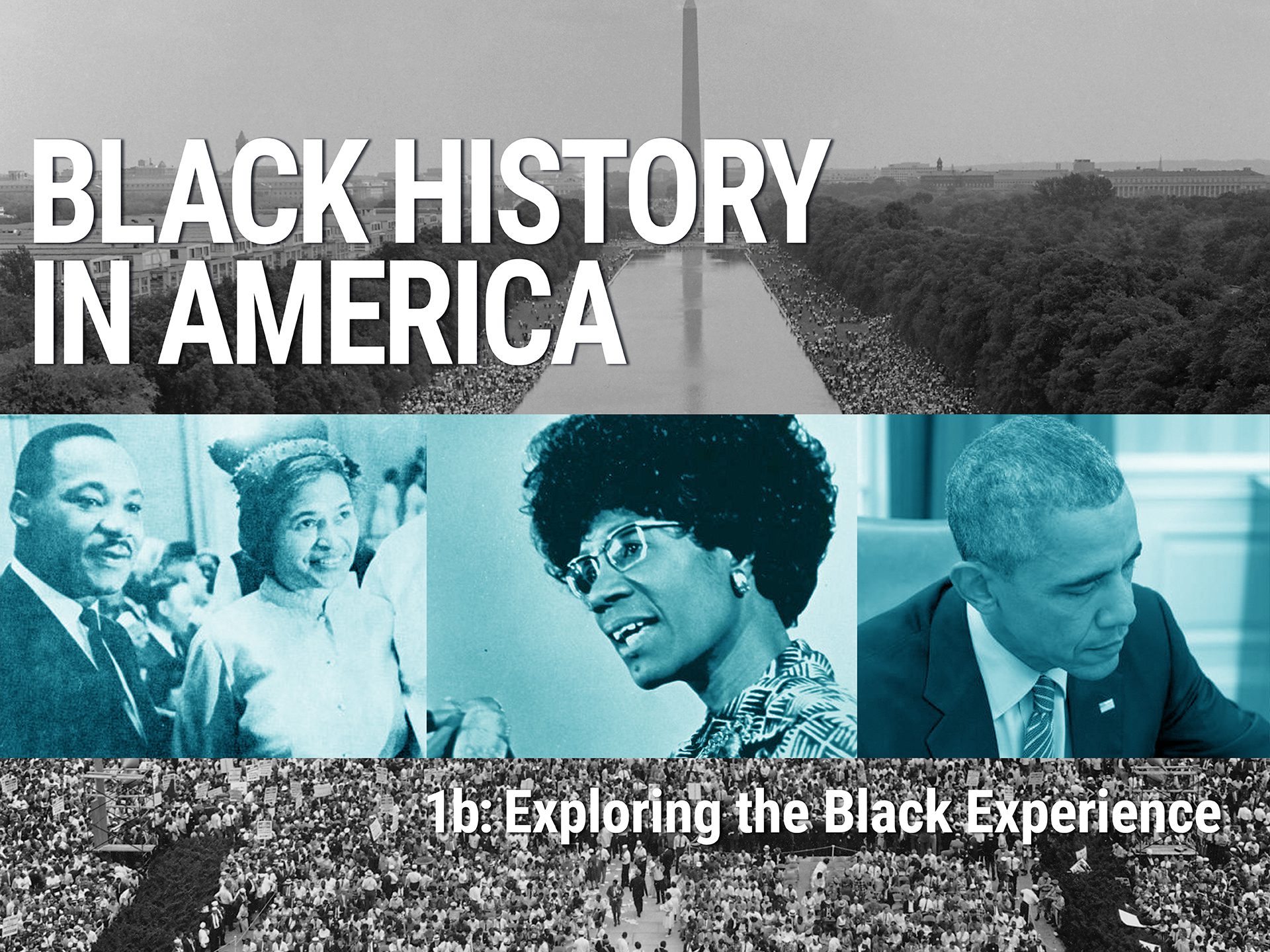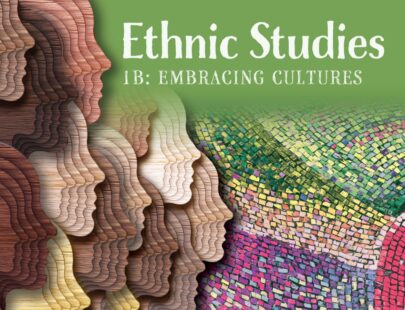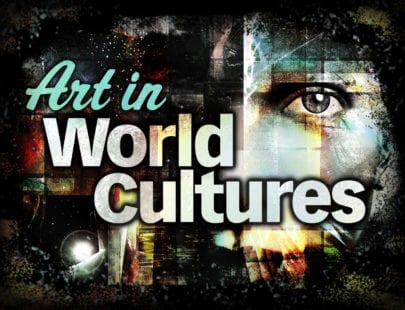
Black History in America 1b: Exploring the Black Experience
By examining the stories of brave men and women who persevered, built community and contributed to our nation’s goals—sometimes amid great persecution—we can all learn how to pave a brighter future. Learn about the incredible history of Black people who have left a mark on the fabric of the United States to the ways the country has wrestled with its past to understand slavery, emancipation, and the fight for civil rights in our nation.
Units at a Glance
Unit 1: Telling the Black American Story
What does it mean to tell the Black American story? Is there a single narrative that can cover all the collective experiences of a people? From ancient roots in Africa to modern-day television dramas, we’ll trace the significance of storytelling in the Black American community. Along the way, we’ll discover how storytelling—in all its rich and diverse mediums—has become crucial to our understanding of the Black community, identity, and culture. Come with us on a journey to explore the many different aspects that make up the Black American story.
Unit 2: Black History from the Civil War through World War I
What caused the American Civil War? What were the Jim Crow laws? And why, after years of enslavement and discrimination, would Black people still fight for America? In this unit, we’ll answer these and many other questions as we journey through one of the most pivotal periods in American history. We’ll begin by trying to unravel the intricate web of causes and consequences that ignited the American Civil War, examining society’s feelings about slavery, money, and what it means to be human. We’ll also spend some time discussing the aftermath of the war, the Reconstruction era and the rapid rise of Jim Crow laws following that period.
Unit 3: Black Music, Dance, and Visual Arts
When you think of art, what comes to mind? In many ways, art is all around us, but some forms of art—like music, dance, and the visual arts—have profound impacts on our lives. Black art in particular, in its many forms and styles, has had an immeasurable impact on American and global culture. In this unit, we’ll examine the pivotal role various Black American individuals and movements played in shaping Black artistry. We’ll also delve into the rich tapestry of Black artistic contributions and explore their impact on Black Americans and, by extension, mainstream art and culture as a whole.
Unit 4: Igniting a Spark for Civil Rights (1920s–1950s)
Some of the most transformative periods in American history moved our nation toward the pivotal civil rights movement. In this unit, we will discover the incredible individuals, events, and socio-political dynamics that shaped the movement in the decades before its eruption in mid-1950s. Here, we will explore the multifaceted aspects that ignited the spark for the civil rights movement—everything from the historical foundations of the movement, including the widespread racism, segregation, and inequality that fueled the demand for civil rights to the many landmark events and visionary people who led the charge for change.
Unit 5: The Civil Rights Movement Gains Momentum
We’ve seen the civil rights movement erupt, and once it did, there was no turning back. The 1960s bore witness to the expansion of this fight for civil freedoms and justice. In this unit, we’ll continue to learn about courageous individuals, impassioned organizations, and landmark events that converged to redefine the nation’s trajectory. We’ll also take some time to analyze the causes and effects of government actions and legislation from 1960 to the present day to better understand the evolving landscape of policies and their impact on societal change.
Unit 6: Struggle, Change, and Progress
In 1990, the world witnessed Nelson Mandela’s historic release from prison, marking a pivotal moment in the fight against apartheid in South Africa and inspiring global calls for equality and justice. In our nation as well, the decades after the civil rights era, including the 1970s to the early 2000s, echoed the triumphs of resilience and unity, sparking hope for change in the struggle against racial oppression worldwide. In this unit, we’ll traverse through these decades, exploring the progress made by Black Americans. We’ll also cover the challenges faced by Black communities across the nation. Along the way, we’ll meet more Black Americans who shaped our nation’s political and social landscapes as they fought in the ongoing struggle for equality and justice.
Unit 7: Education, Innovation, & Invention
What impact has education had on the Black experience in America? To answer this question, we’ll venture back to the time of slavery and trace the history of Black education through to Brown v. Board of Education and beyond. As we go, we’ll unravel the historical and evolving landscape of educational opportunities for Black Americans, including challenges Black students face, the pivotal role of historically Black colleges and universities (HBCUs), and the “Divine Nine.” Finally, we’ll meet (or re-meet) some influential Black scientists, mathematicians, and thinkers who have been on the cutting edge of their fields over the last century and a half.
Unit 8: The Black American Experience Today
At the beginning of this two-part course, we asked you what you thought it meant to be Black in America. Now as we come to the end of our journey, we’re asking you to reflect on this question again in a slightly different way: What does it mean to be Black in America today? In this unit, we’ll delve into the complexities of modern-day Black American experiences. Throughout this journey, we’ll explore the dynamic landscape of achievements from Black politicians and activists. We’ll also deep dive into some of the persistent issues that the Black community faces, while becoming familiar with some regions in America that foster Black wealth-building and entrepreneurship.
Required Materials
Software
- Presentation software
- Word processing software
Optional
- Art supplies
- Audio recording device
- Digital camera
- Graphic design software
- List app
- Timeline creation application
- Video recording device



